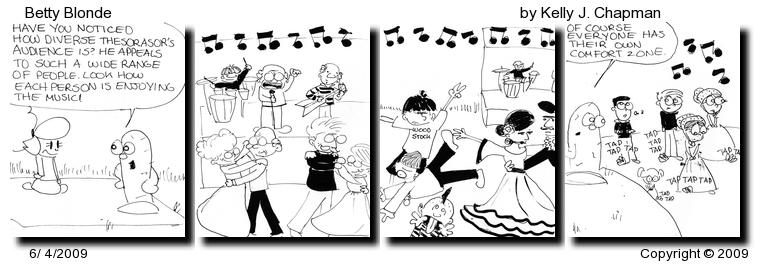This post is part of a narrative history of our homeschool. It is about why we chose to homeschool, what we did and how we did it. It is about our failures and frustrations as well as our successes. The plan is to make an honest accounting of it all for the benefit of ourselves and others. This is a work in progress which was started in late October 2014 after the kids had already skipped most or all of high school, Christian had earned a Bachelor’s degree in Mathematics (Summa Cum Laude), Kelly had earned a Bachelors degree in Statistics (Magna Cum Laude) and they were ensconced in funded PhD programs on the West Coast. I add to the narrative as I have time.
Study of Worldviews, Religion and Philosophy was fundamental to our homeschool. This subject matter seeped into just about everything we did, not just our homeschool. It encapsulated a lot of things that kind of mushed together and permeated everything else. I will try to break them into some broad categories to give a sense for the scope of our work in this area.
The Bible
It all started with the Bible. The kids memorized Bible verses from age three forward. Until they were about eight, we did it together with me reading them verses they would repeat until they were memorized. From eight until about ten, the kids transitioned from memorization with Dad’s help to memorization by reading on their own. It was amazing how much stuff they memorized. The first whole chapter each of them memorized was Psalm 8. There was a lot of stuff in between, but it all culminated with the memorization of the Sermon on the Mount, Matthew 5-7, before they went off to college. The memorization verses were complementary to our other studies in this area.
All of our work with the Bible was augmented by church attendance, two or three times per week. This is not the time and place to discuss church so I will just note that our homeschool would have been greatly impoverished if church participation were not integral to it.
Engaging with Other People
In the first year of our return to homeschool we read two introductory books on logic and reasoning for children. The books were titled The Fallacy Detective and The Thinking Toolbox. We used these books to give the kids tools to evaluate what they heard as they engaged with the culture. The books featured stories and exercises that showed them how to identify common fallacies such as red herrings, ad hominem attacks, genetic fallacies, tu quoque and others. The exercises walked them through how these fallacies might show up in their day to day lives. This was a surprisingly effective introduction to some fairly subtle material that inoculated them from quite a bit of popular culture nonsense.
Tools to help the kids engage with people in a kind and effective way was just as important as the ability to detect nonsense. The first two books described above give a brief treatment to this by focusing on the importance of listening before jumping into the combative logic and reasoning. Actually combative interaction was very much discouraged. We wanted more in that area so we read How to Win Friends and Influence People aloud together. This had a big enough positive influence on the kids the first time we read it, they asked to read it again several years later.
Another book that was especially helpful in terms of how to treat people with respect while not getting steamrolled by false logic was Greg Koukl’s excellent book Tactics. The tools learned from that book were especially helpful when the kids went on to college.
Worldviews
There were several areas on which we concentrated with respect to worldviews. First, we wanted the kids to know that belief in Christianity is rational. That Jesus really did come to this earth, die, was resurrected, said the things the Bible claimed he said and lived his life the way the Bible says he lived his life are a matter of history and it is rational to believe all of it. We wanted the kids to know the history and scholarship surrounding that what we know about Jesus supports their faith and is confirming to the personal revelation of Christ that is fundamental to Christianity. We read books and watched lectures by Historical Jesus scholars such as Gary Habermas, N.T. Wright, William Lane Craig, J.P. Moreland, Michael Wilkins and others. We watched scholarly debates. We evaluated the works of some of the liberal fringe scholars like Marcus Borg, Bart Ehrman and the people that make up the Jesus Seminar so the kids could see what was said by the other side even though those scholars have been fairly thoroughly discredited.
Next, we wanted to understand what people of other worldviews actually thought. The Sonlight Literature and History materials covered different cultures, religions and worldviews fairly well. This is especially true of their hugely helpful curriculum titled Understanding the Times. Here is quote from their description of the what the program covers:
This 18-week curriculum helps you examine how each of the four dominant Western worldviews (Secular/Cosmic Humanism, Marxism/Leninism, Islam, and Biblical Christianity) uniquely interpret reality in different areas of theology, philosophy, ethics, biology, and more.
We read Understanding the Times aloud, stopping to discuss different aspects of the material much more frequently than for any of our other read aloud books. One thing we did not do was use the ancillary materials (workbooks, CD’s, etc.). A close reading of the book with discussion worked much better for us than these other materials.
Before we read the Understanding the Materials text, the kids read Paul Johnson’s The Intellecutals about the morally bankrupt personal lives of many liberal icons like Noam Chomsky, Karl Marx, Sigmund Freud and John Dewey. We also read several books on the the Crusades, the rise of Christianity and the rise of western civilization by sociologist Rodney Stark. I think the Understanding the Times book was much more fruitful because of this preparation.
Intelligent Design
There is a sea change going on right now in the area of origins. We spent some time on this by reading books, principally Understanding Intelligent Design: Everything You Need to Know in Plain Language. We also watched some debates and videos such as the Privileged Planet. All that was good, but after we finished homeschool, a bunch of great new material has come out that we certainly would have included if had arrived in time. These include Darwin’s Doubt, Signature in the Cell, Being as Communion: A Metaphysics of Information (especially for Christian because of the math content) and The Edge of Evolution: The Search for the Limits of Darwinism.
Betty Blonde #231 – 06/04/2009

Click here or on the image to see full size strip.

Leave a Reply